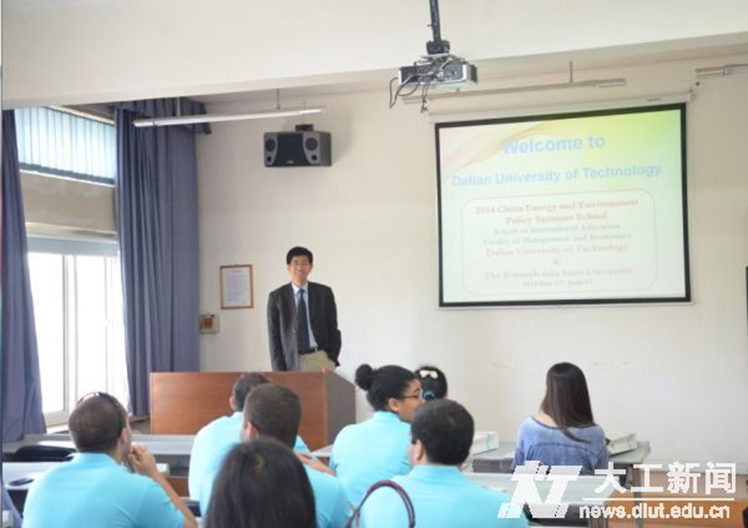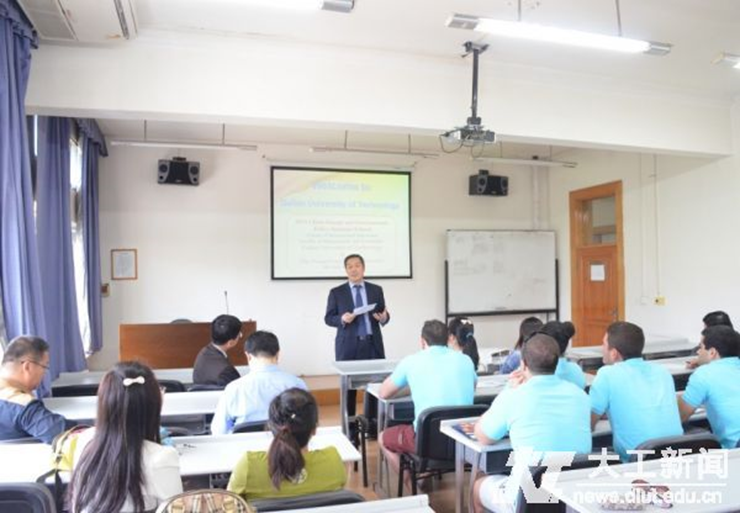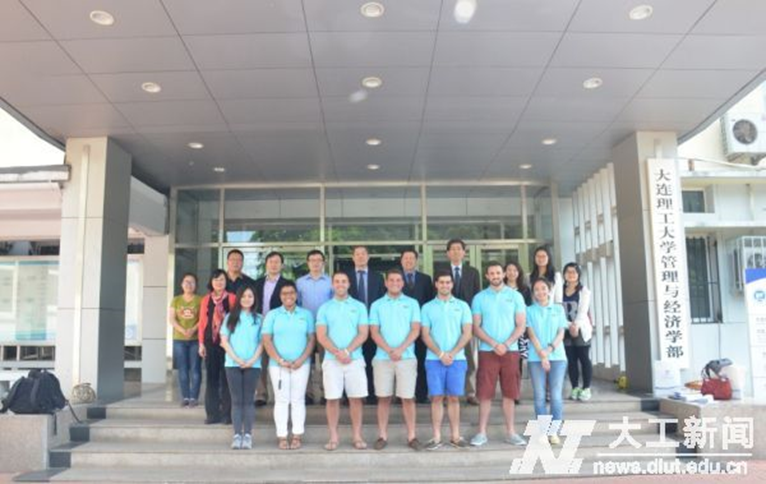Date:Jun 4, 2014
On the morning of May 18, the School of Economics and Management and the School of International Education held the opening ceremony of the "2014 China Energy and Environmental Policy Summer Credit Class" in classroom 416 of the School of Economics and Management. Professor Su Jingqin, Min Qingfei, Wang Erda, and associate professor Fan Guangzhe from the School of Economics and Management, associate professor Wu Haowen, director of the Office of International Cooperation and Exchanges, Professor Chen Hongjun, dean of the School of International Education, associate professor Du Fang, assistant to the dean, and other relevant personnel attended the ceremony, extending a warm welcome to the seven students from the Pennsylvania State University, the United States for their trip.


Professor Chen Hongjun first introduced the situation of DUT and the long-term friendly cooperation and exchanges between the two universities, especially the cooperation in the establishment of the Confucius Institute and the Joint Energy Research Center. The School of International Education and the School of Economics and Management had begun planning this summer program since 2011. After repeated negotiations and careful planning with the School of Mining and Overseas Study Center of Pennsylvania State University, the program was implemented for the first time this year. Afterwards, Professor Su Jingqin introduced the development history of the School of Economics and Management, which was not only the first educational institution in China to introduce modern management education from abroad, but also the first teaching unit to introduce advanced management concepts and methods from other developed countries. The two core courses taught in English in this summer program were "Overview of China's Economy" and "China's Energy and Environmental Policy", respectively taught by Professor Wang Erda and Professor Fan Guangzhe of the School of Economics and Management. Du Fang from the School of International Education explained in detail the basic regulations of the dormitory and other precautions. Finally, Professor Chen Hongjun hoped that the students would have a wonderful and unforgettable time in DUT and in China.

The summer program lasted 6 weeks, from May 18 to June 27. Through two specialized courses, American students could obtain 6 credits, which would be included in their total credits at Pennsylvania State University. In order to let students have a richer experience, DUT specially arranged visits to companies and Panjin campus, and Chinese cultural traditions and special courses, such as paper-cutting, calligraphy, Chinese painting, Tai Chi and other after-school activities.